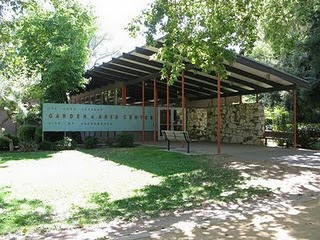

|
||||
|
The Shepard Garden and Arts Center is used by nearly 30 clubs.
(Photo: Courtesy SGAAC) |
|
|
Comments
0 comments have been posted.Sacramento Digs Gardening to your inbox.
Sites We Like
Garden Checklist for week of May 5
Survey your garden after the May 4 rainstorm. Heavy rain and gusty winds can break the neck of large flowers such as roses. Also:
* Keep an eye on new transplants or seedlings; they could take a pounding from the rain.
* Watch out for powdery mildew. Warmth following moist conditions can cause this fungal disease to “bloom,” too. If you see a leaf that looks like it’s dusted with powdered sugar, snip it off.
* After the storm, start setting out tomato transplants, but wait on the peppers and eggplants (they want warmer nights). Pinch off any flowers on new transplants to make them concentrate on establishing roots instead of setting premature fruit.
* Trim dead flowers but not leaves from spring-flowering bulbs such as daffodils and tulips. Those leaves gather energy to create next year's flowers. Also, give the bulbs a fertilizer boost after bloom.
* Pinch chrysanthemums back to 12 inches for fall flowers. Cut old stems to the ground.
* Mulch around plants to conserve moisture and control weeds.
* From seed, plant beans, beets, cantaloupes, carrots, corn, cucumbers, melons, pumpkins, radishes and squash.
* Plant onion sets.
* In the flower garden, plant seeds for asters, cosmos, celosia, marigolds, salvia, sunflowers and zinnias. Transplant petunias, zinnias, geraniums and other summer bloomers.
* Plant perennials and dahlia tubers for summer bloom.
* Don’t wait; plant summer bulbs, such as gladiolus and tuberous begonias.
* Harvest cabbage, lettuce, peas and green onions.